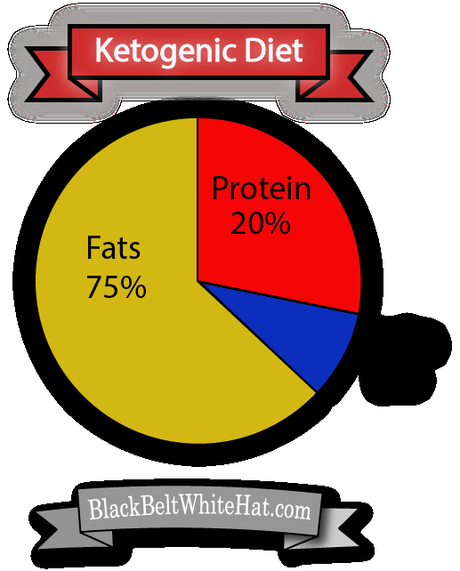Summary:
- It Depends on your genetics
- More research is required
- Some forms of cancer require carbohydrate as fuel
- Some other forms of cancer require fats
- There’s research for & against low carb diets
- Plant based low carbohydrate appear to be the healthiest low-carb option
- Low carbohydrate diets can improve endurance, if adhered to for long enough – ‘fat adaption’ takes months
The low carb diet, is often called the ketogenic diet.
This is because when carbohydrate is restricted, the liver produces ketones as fuel for the brain. Ketones may have a range of beneficial properties for the brain.

It’s also important to be aware that it takes 1 to 2 months to become fully ‘fat adapted’. Even longer in some cases. Restricted carbohydrate intake can result in reduced physical and mental performance for the first few weeks as the body adapts to a new fuel source and excretes water that is stored with carbohydrates in the body.
This is often called the “keto flu”. You feel terrible because your body excretes electrolytes with the water, supplementing with magnesium and Himalayan salt may help a little.
A number of studies show that endurance may be enhanced when adapted to fat.
Argument for Low Carb Diets
Babies are in ketosis when they are born and when they are exclusively breast-fed.
Chances are, your ancestors spent a large percentage of time in ketosis, as they wouldn’t have access to grains and agricultural-style crops.
If humans have existed for around 300,000 years (ref/more info) – then agriculture and corresponding diets have been around for between 12,000 and 2,000 years, depending on where in the world you live.
Before agriculture, so for around 300,000 years, most humans would have been on a very low carbohydrate diet.
There is also research to suggest that once fully ‘fat-adapted’, the brain actually functions better on a low carbohydrate diet.
In fact, BHB (a major ketone) may be an even more efficient fuel than glucose, providing more energy per unit oxygen used. A ketogenic diet also increases the number of mitochondria, so called “energy factories” in brain cells. A recent study found enhanced expression of genes encoding for mitochondrial enzymes and energy metabolism in the hippocampus, a part of the brain important for learning and memory. Hippocampal cells often degenerate in age-related brain diseases, leading to cognitive dysfunction and memory loss. With increased energy reserve, neurons may be able to ward off disease stressors that would usually exhaust and kill the cell.
A number of studies show that high fat diets actually increase life-expectancy / longevity
High carbohydrate intake was associated with higher risk of total mortality, whereas total fat and individual types of fat were related to lower total mortality. Total fat and types of fat were not associated with cardiovascular disease, myocardial infarction, or cardiovascular disease mortality, whereas saturated fat had an inverse association with stroke. Global dietary guidelines should be reconsidered in light of these findings.
Study here
- Ketosis also improves wound-healing (ref/study)
- Ketosis and ketone supplements have been used by the Navy Seals to combat toxicity related to diving/oxygen deprivation (ref/study)

Argument Against Low Carb Diets
We have Adapted to Agriculture.
For example, an adults ability to digest milk depends on a gene that didn’t exist until around 4,000 years ago.
…the gene that allows adults to digest milk didn’t become common until about 4,000 years ago – thousands of years later than previously thought.
A number of studies show that low carbohydrate diets reduce endurance and dramatically reduce strength & power.
In addition, a number of studies have shown that low carbohydrate diets may result in reduced longevity/lifespan. Well, according to the BBC anyway.
Confusing? Yes!
How well you fare on a low carbohydrate diet, may depend on how well adapted you are to it.
An Eskimo might not do too well on a high carbohydrate diet, whereas an Italian, who’s great grandparents ate pasta etc. may find a high fat diet detrimental to his/her health.
Fasting, or even carb-cycling (having 2 or 3 days a week low carb) may be more beneficial for a higher percentage of the population. But that’s another blog post…
Ketogenic diets are becoming more popular in the MMA-world, because of the reported dramatic anti-inflammatory benefits of ketones.
Targeted ketosis may be best suited to MMA

